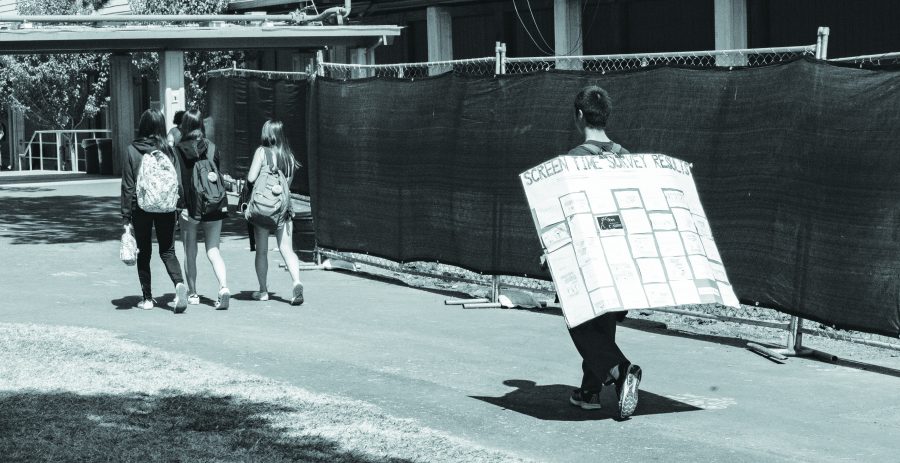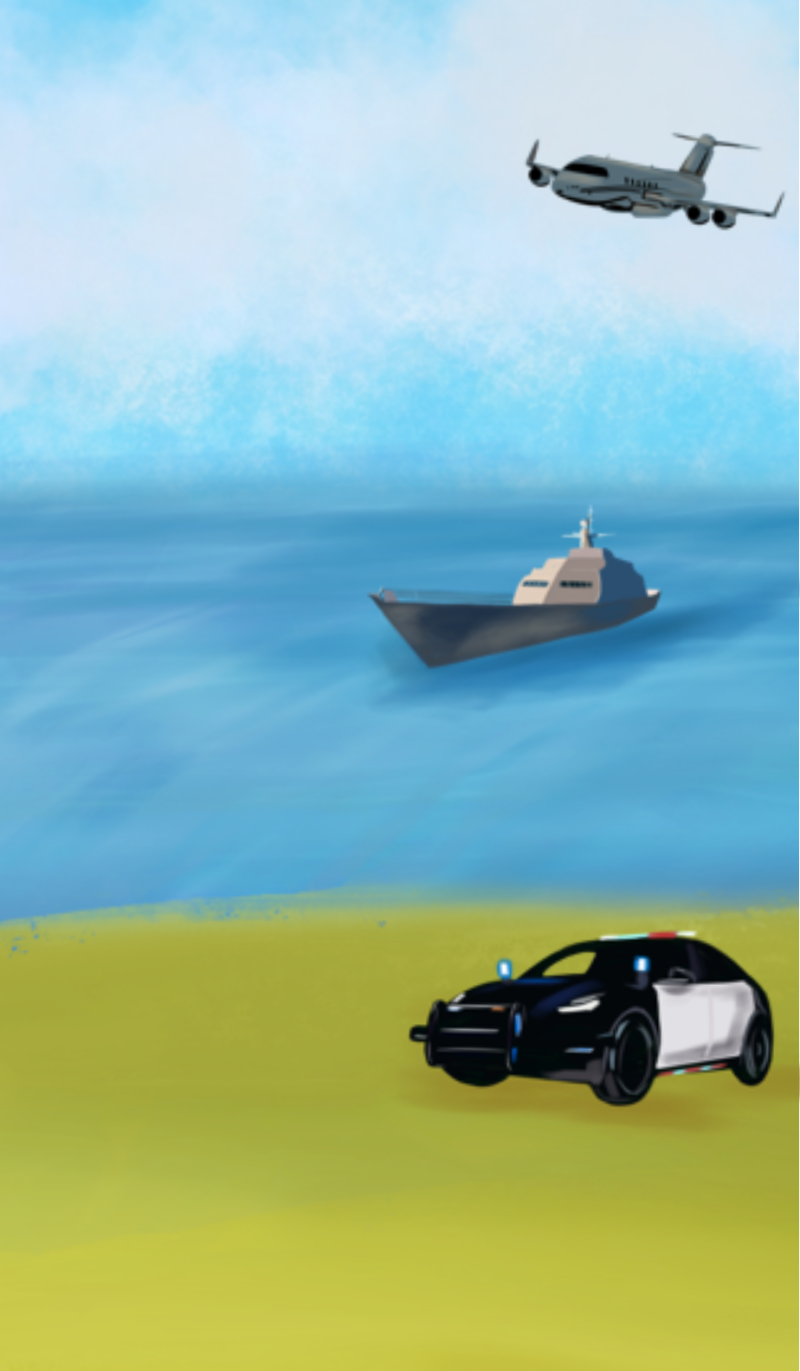Written by Amanda Lee
At the beginning of the school year, sophomore Alexander Wang could be seen around campus carrying a large poster board on his backpack that drew curious students and teachers to approach and study it. The poster, a typical science fair display board with three panels, featured Wang’s graphs of data he gathered from a survey he administered last school year. Scattered throughout the array of graphs were printed comics on statistics he likes from the webcomic xkcd.com meant to enrich the content of the poster.
Last year, Wang conducted a survey to research the relationship between the number of hours students spent on their electronic devices and the classes they took at Gunn. He gathered this information to prove to his parents that he could spend more time on the computer and still do well academically. “I was hoping that if I could show there was no correlation between grades and screen time then my parents would give me more computer time,” Wang said.
Wang gathered his data by setting up a table between the senior quad and the Bat Cave. “I would bring some surveys and pencils and chocolates and a sign that said ‘take survey for free chocolate’ and people would come and take my survey,” he said. “On the survey, I asked for all of their classes and grades and how much screen time they got each week.” In total, he says more than 200 students took the survey.
As he hypothesized, he found there was no correlation between screen time and grades in most classes. “For the average chemistry student, one hour of screen time per week increases the grade by 2 percent,” Wang said.
Unfortunately for Wang, his parents still did not agree to give him more computer time while he was in school. “[My parents] said screen time might affect some stuff that I can’t measure, so I still have to be careful,” he said. He did, however, enjoy more computer time during the summer.
Wang put together the sign this year to show other students who had limited computer time that screen time is not related to a drop in grades. Wang says students were interested in his poster project and wanted to learn more. “There were a bunch of students who thought it was kind of cool and a few of them who wanted to know what my parents said to me,” he said. “And there were some students who kept asking me how long I was going to carry it.”
His teachers had mixed reactions. “Some of my teachers were impressed, some of [them] were annoyed that I would have to bring it to their class every day,” he said. “One of my teachers said it was a garbage study because I didn’t control it enough and the sample wasn’t fair enough.”
Wang’s parents were concerned about his safety since his poster is huge and hard to carry. “Since I bike to school and back home, they [were] worried that I might hit something while I’m on my bike,” Wang said. “So I made this [part of the poster] fold really easily, so if I hit something I [won’t] fall off my bike.”
At the time of this interview, Wang said he would stop displaying the poster soon. “I’m probably not going to bring it to school anymore,” he said. “I think two weeks is long enough.” Since then, he has stopped bringing the poster to school.
Wang says he does not have other survey plans at the moment, but he does want to publish a paper on his findings. “For that particular survey, I might want to write an article in APA format or something like that and try to publish it in an actual student journal,” he said. “And I might do more surveys in the future if I find something that annoys me a lot.”












